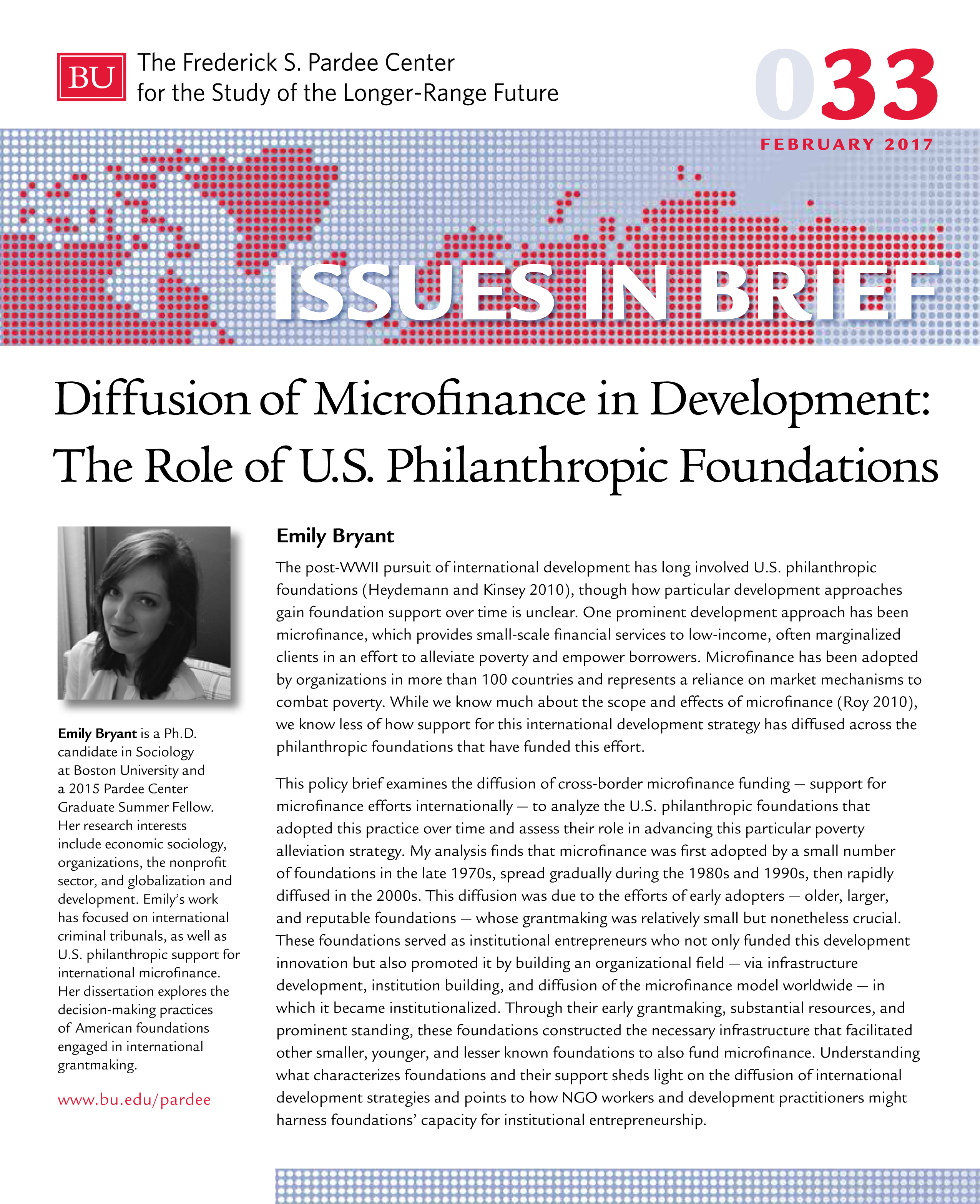Issues in Brief, No. 33, February 2017
Diffusion of Microfinance in Development: The Role of U.S. Philanthropic Foundations
 By Emily Bryant
By Emily Bryant
February 2017 (8 Pages)
Download PDF
Microfinance programs that provide small loans to poor people engaging in income-generating activities is a common means of supporting international development and poverty alleviation efforts. In this Issues in Brief, Emily Bryant, a Boston University doctoral candidate in Sociology and 2015 Pardee Center Graduate Summer Fellow, explores the role that U.S. philanthropic foundations played in helping to create the organizational infrastructure that allowed for the diffusion of such programs. Her first-of-its-kind analysis looks at the amount and type of support that various sizes and kinds of U.S. foundations devoted to microfinance over time, and finds that the early support of older, wealthier foundations paved the way for microfinance to become a new type of poverty alleviation program starting in the late 1970s. “Understanding what characterizes foundations and their support sheds light on the diffusion of international development strategies and points to how NGO workers and development practitioners might harness foundations’ capacity for institutional entrepreneurship,” Bryant writes.
Emily Bryant is a Ph.D. candidate in Sociology at Boston University, where she was 2015 Pardee Center Graduate Summer Fellow. Her work has focused on international criminal tribunals as well as U.S. philanthropic support for international microfinance. Her dissertation examines the decision-making practices of American foundations engaged in international grantmaking.